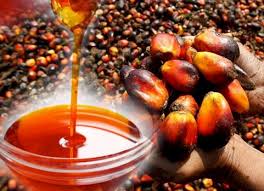Exporting palm oil is a great opportunity for Nigerian businesses to tap into international markets. However, success requires proper planning, compliance with global standards, and overcoming logistical hurdles. The demand for palm oil is high, but competition is fierce. Nigerian exporters must take strategic steps to ensure their products meet global expectations. Below are the essential steps to successfully export palm oil in 2025.
1. Conduct Market Research
Before exporting palm oil, exporters must conduct thorough market research. Identify target markets in Europe, Asia, Africa, or the Americas and analyse demand trends, regulatory requirements, and buyer preferences.
Join our WhatsApp ChannelUnderstanding market regulations is essential. Some countries require certifications like the Roundtable on Sustainable Palm Oil (RSPO) certification. Researching import restrictions, quality standards, and packaging requirements helps in positioning the product competitively. Identifying reliable buyers and distributors also ensures smooth entry into international markets.
2. Register Your Business and Obtain Licenses
To legally export palm oil from Nigeria, businesses must be registered with the Corporate Affairs Commission (CAC) and obtain an export license from the Nigerian Export Promotion Council (NEPC).
READ ALSO: List Of Countries That Open Doors To Nigerians With UK Visa, BRP
Compliance with the Standard Organization of Nigeria (SON) and the National Agency for Food and Drug Administration and Control (NAFDAC) is mandatory. Exporters must also register with the Nigeria Customs Service to facilitate clearance processes. Ensuring proper documentation prevents delays and legal challenges when shipping goods abroad.
3. Source High-Quality Palm Oil
Quality plays a major role in securing international buyers. Many global markets have strict quality control measures. Nigerian exporters must ensure that their palm oil meets international standards by sourcing from reputable mills or farmers using proper processing techniques.
Regular quality testing and certifications enhance buyer confidence. Meeting international quality benchmarks helps Nigerian palm oil compete with leading producers like Malaysia and Indonesia.
4. Proper Packaging and Labelling
Packaging plays a key role in protecting palm oil during transportation. The packaging should be durable, food-grade, and suitable for international shipping. Options include plastic drums, jerry cans, and bulk containers.
Labeling requirements vary by country. Each package should include essential information such as production date, expiration date, and country of origin. Complying with international packaging laws prevents customs issues and ensures smooth entry into foreign markets.
5. Use Digital Marketing to Find Buyers
Digital platforms offer a great way to connect with global buyers. Websites like Alibaba, Global Sources, and ExportersIndia provide B2B marketplaces where exporters can find reliable distributors.
Participating in online trade fairs and building an online presence through digital marketing helps exporters reach a larger audience. A well-structured online strategy improves visibility and credibility in competitive global markets.
Once potential buyers are identified, it is crucial to draft an export contract. This document should specify product details, payment terms such as a Letter of Credit, and delivery terms like Free on Board (FOB) or Cost, Insurance, and Freight (CIF).
6. Work With Freight Forwarders for Smooth Exportation
Shipping is one of the most challenging aspects of exporting palm oil. Choosing the right shipping method depends on the buyer’s location and order size.
Air freight is ideal for small, high-value shipments, while sea freight is more cost-effective for bulk exports. Partnering with experienced freight forwarders ensures seamless logistics management, customs documentation, and shipping compliance.
Required export documents include:
- Commercial Invoice
- Packing List
- Bill of Lading or Airway Bill
- Certificate of Origin
- Quality Certification
- Phytosanitary Certificate (if required)
Having the correct documents ensures smooth customs clearance and avoids unnecessary delays.
7. Overcoming Export Challenges
Exporting palm oil from Nigeria comes with challenges such as high logistics costs, quality control issues, and stiff competition from established producers.
To overcome these obstacles, exporters should:
- Improve product quality by using modern processing techniques.
- Obtain relevant certifications like RSPO and Good Manufacturing Practices (GMP).
- Utilize government incentives such as low-interest loans and export support programs.
- Reduce logistics costs by working with trusted freight forwarders.
- Expand networks through trade fairs and online platforms.
These strategic measures help Nigerian palm oil exporters remain competitive in the global market.
Building a Profitable Palm Oil Export Business
Exporting palm oil in 2025 presents significant opportunities for Nigerian businesses willing to invest in quality and strategic planning.

By following these key steps—from conducting market research to ensuring proper documentation and overcoming logistics challenges—exporters can successfully navigate international trade and expand their businesses.
With a focus on quality, compliance, and smart marketing, Nigerian palm oil can establish a strong presence in the global market, driving economic growth and increasing the country’s export potential.
Emmanuel Ochayi is a journalist. He is a graduate of the University of Lagos, School of first choice and the nations pride. Emmanuel is keen on exploring writing angles in different areas, including Business, climate change, politics, Education, and others.

















